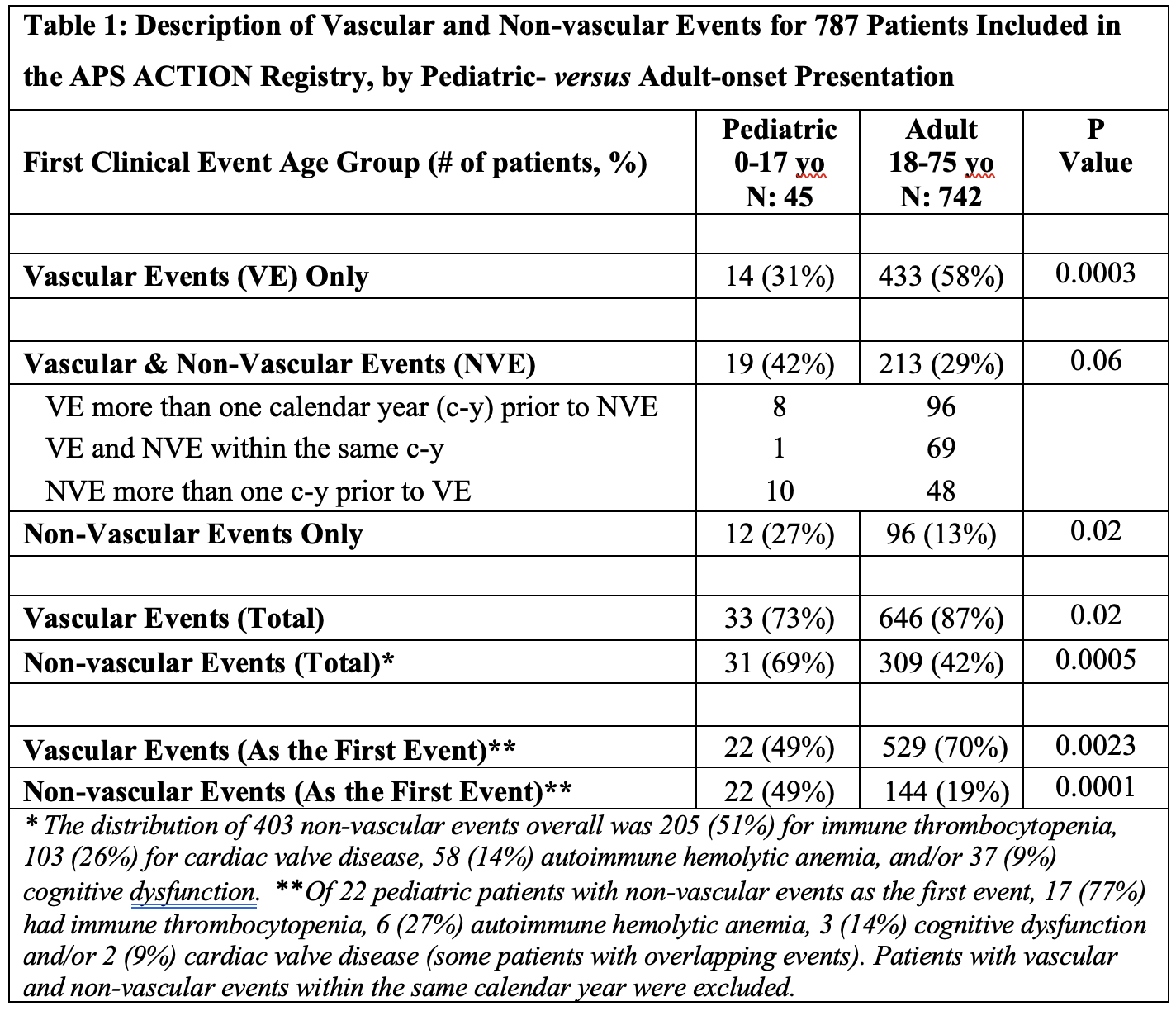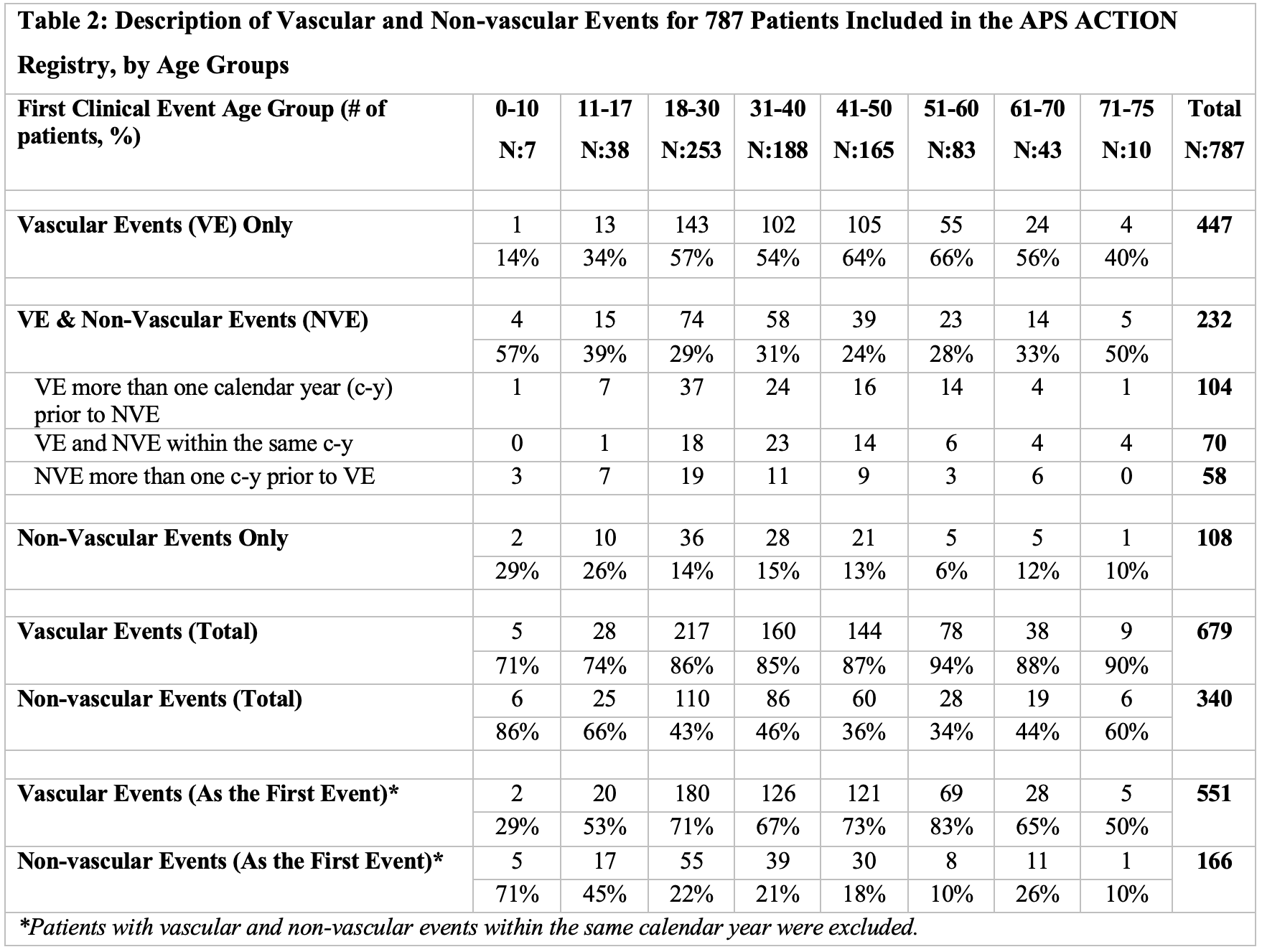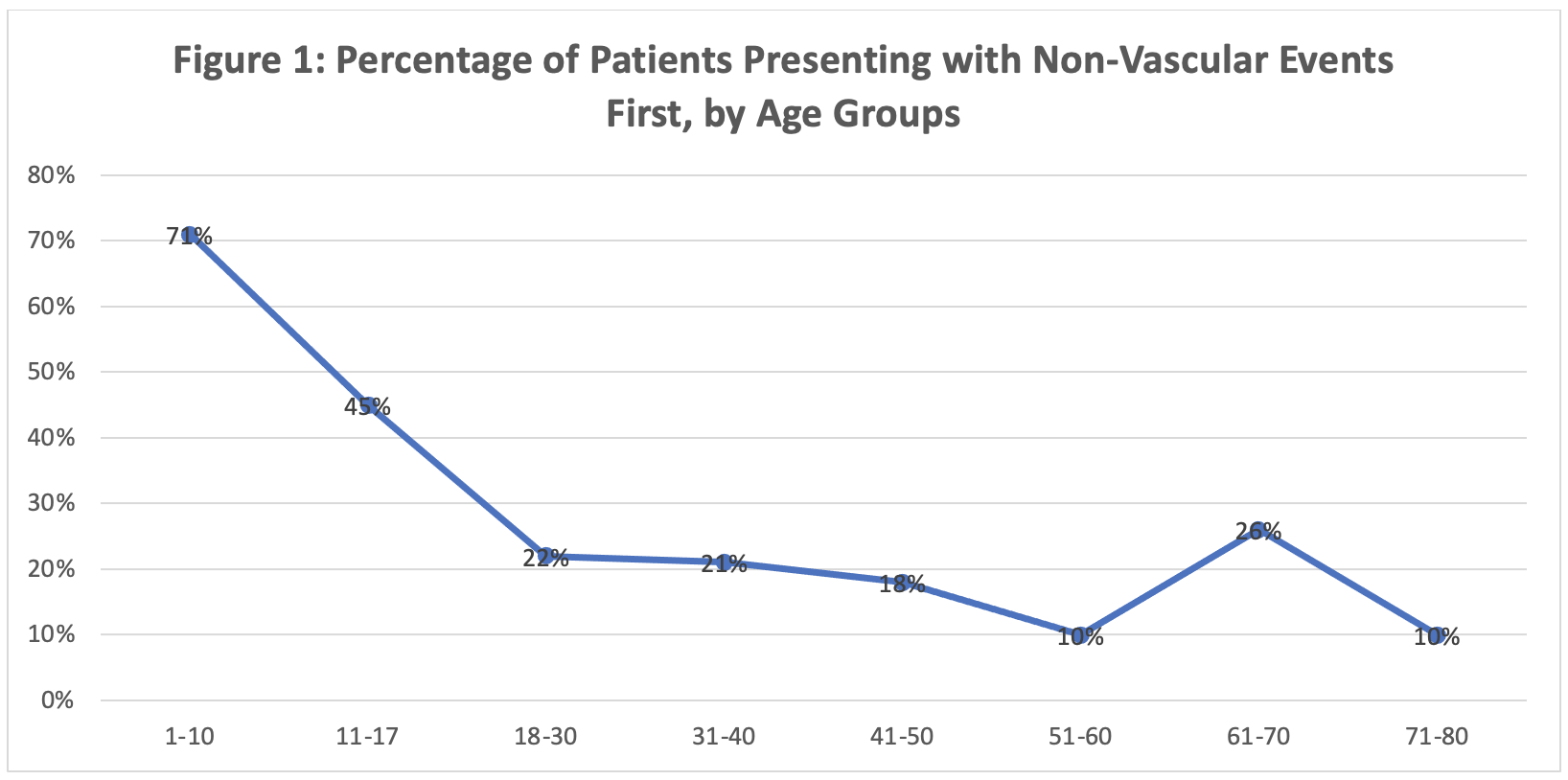Session Information
Session Type: Poster Session B
Session Time: 10:30AM-12:30PM
Background/Purpose: APS ACTION Registry studies long-term outcomes in persistently antiphospholipid antibody (aPL)-positive patients with/without other systemic autoimmune rheumatic diseases. Given autoimmune diseases present differently in different age groups, and the limited number of studies comparing pediatric to adult antiphospholipid syndrome (APS) patients, our objective was to analyze the characteristics of patients presenting with aPL-related clinical manifestations during childhood (pediatric-onset) versus adulthood (adult-onset).
Methods: A web-based data capture system is used to store patient demographics and aPL-related medical history. Inclusion criteria are patients between 18 to 75 years-old (yo), and positive aPL based on Revised Sapporo Classification Criteria. For this retrospective analysis, we retrieved baseline demographic, clinical (including the first aPL-related event type/date), and laboratory (including the first positive aPL date) characteristics of patients. Events were grouped as: vascular (macro/micro); and non-vascular (immune thrombocytopenia, autoimmune hemolytic anemia, cardiac valve disease, and/or cognitive dysfunction). First, we compared the frequency of vascular and non-vascular events between patients with pediatric (0-17 yo)- and adult-onset (18-75 yo) aPL-related manifestations. Secondly, we descriptively analyzed the characteristics of patients in smaller age intervals, and the timeline between the first aPL-related clinical event and first aPL positivity.
Results: Of 1,122 patients recruited as of January 2023, 335 (30%) were excluded due to no history of an aPL-related event. Of 787 remaining (mean age at registry entry 46 + 14), 70% (547) were female; 61% (484) had primary aPL-positivity with/without APS classification, 32% (248) had lupus classification, 447/787 (57%) had only vascular events, 108 (14%) had only non-vascular events, and 232 (29%) had both. Pediatric-onset patients presented more commonly with a non-vascular event (as the first event), compared to adult-onset patients (49% vs 19%, p: 0.0001) (Table 1); the percentage of patients presenting with a non-vascular event mostly decreased with each increasing age group (Table 2, Figure 1) A subgroup analysis of 484 primary aPL/APS patients, revealed no significant change in the results; 47% of pediatric-onset and 20% of adult-onset patients presented with a non-vascular event (p: 0.0007, full data not shown). Timeline analysis between the first aPL event and aPL positivity demonstrated, 317 (40%) patients had a positive aPL test within the same calendar year (c-y) of the first clinical event, 207 (26%) within (+/-) 1 to 3 c-y, and 263 (33%) more than (+/-) 3 c-y.
Conclusion: Our analysis of a large-scale international multi-center registry for persistently aPL-positive patients demonstrates that patients with pediatric-onset aPL-related manifestations more commonly present with non-vascular events. These results, despite the relatively small number of pediatric-onset aPL-related manifestations, highlight the importance of understanding the clinical differences between pediatric and adult APS patients, which have diagnostic, therapeutic, and research implications.
To cite this abstract in AMA style:
Pandya J, Andrade D, Clarke A, Tektonidou M, Pengo V, Radin M, Pardos-Gea J, Kello N, Paredes-Ruiz D, Aguirre-Zamorano M, Belmont H, Fortin P, Signorelli F, ATSUMI T, Zhang Z, Efthymiou M, Branch D, Pazzola G, Tincani A, Duarte-Garcia A, Rodriguez-Almaraz E, Petri M, Cervera R, Artim Esen B, Pons-Estel G, Shi H, Zuo Y, Willis R, Meroni P, Roubey R, Bertolaccini M, Cohen H, Erkan D. Antiphospholipid Antibody-related Clinical Manifestations Presenting During Childhood versus Adulthood: Descriptive Results from the AntiPhospholipid Syndrome Alliance for Clinical Trials and InternatiOnal Networking (APS ACTION) Clinical Database and Repository (“Registry”) [abstract]. Arthritis Rheumatol. 2024; 76 (suppl 9). https://acrabstracts.org/abstract/antiphospholipid-antibody-related-clinical-manifestations-presenting-during-childhood-versus-adulthood-descriptive-results-from-the-antiphospholipid-syndrome-alliance-for-clinical-trials-and-internat/. Accessed .« Back to ACR Convergence 2024
ACR Meeting Abstracts - https://acrabstracts.org/abstract/antiphospholipid-antibody-related-clinical-manifestations-presenting-during-childhood-versus-adulthood-descriptive-results-from-the-antiphospholipid-syndrome-alliance-for-clinical-trials-and-internat/



